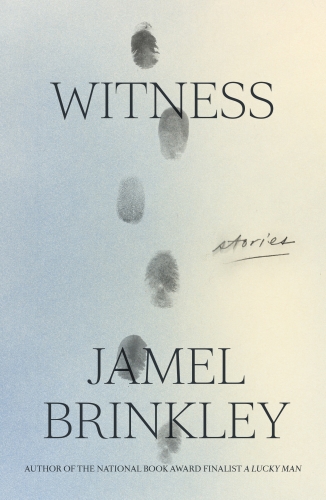Maya Angelou Book Award Winner to Speak at Plaza Branch

The presence of a ghost means that the past is speaking to you, author Jamel Brinkley says. “You can’t ignore the past.”
His book, Witness: Stories, won the fourth annual Maya Angelou Book Award and turns around and around the idea of what it means to witness, or to be witnessed, including how a ghost functions in that capacity.
“A witness is sort of an active seer, right, like someone who is dedicated to perceiving what is going on around them,” Brinkley says.
In the case of a ghost, whether it’s “real” or in a character’s imagination, its role as a witness forces the living person to acknowledge and incorporate the past into current decision-making.
For instance, in the story “Arrows,” the ghost of the protagonist’s mother witnesses the steps he takes to move his aging father from the family’s home to “a home.”
He feels his dead mother’s eyes on him, feels her judgment, knows – and actually hears – her opinion about his decision to relocate his father and sell the house. All of that informs his actions.
Brinkley says that when he began work on this collection, which is set in the neighborhoods of the Bronx and Brooklyn where he grew up, he noticed the witness theme emerge and worried that if he continued to explore it, the stories might be too similar.
“What I found was that the idea of ‘witness’ was so large and capacious,” he says, “that I could write all kinds of different stories in a way that connected the stories but did not make the stories redundant.”
One of the book’s epigraphs is from writer and civil rights activist James Baldwin: “I was to discover that the line which separates a witness from an actor is a very thin line indeed; nevertheless, the line is real.”
Brinkley walked that line through all 10 stories, asking an exhaustive number of questions about what it means to hear or see and what happens – or doesn’t – when someone acts on that input.
In the story “Bartow Station," a man and woman explore an unsettling experience of witnessing. They’re in a “situationship,” that is, an arrangement that offers a type of companionship but nothing in the way of relationship security or love.
The man decides to disclose to the woman a traumatic event, making her a sort of secondhand, after-the-fact witness.
The woman refuses that role; she does not want to be any type of witness to the man’s trauma.
“I've talked to people about that story,” Brinkley says, “and some of them think that it's a failure on Zoelle’s part to reject him in that way, and they're kind of mad at her.”
He likes that readers debate the character’s choice because he wants that nuance and complexity.

“One of the reasons that we aren't good witnesses or even secondhand witnesses is because we feel like we can't bear what's being said, can’t bear what’s happening, so there's a kind of turning away,” he explains.
The willingness of other people to be involved is a factor in what makes witnessing so complicated; testifying doesn’t matter if no one hears.
Part of the Maya Angelou Book Award prize package aims to increase the number of people who hear the author’s message through a reading tour of partner colleges, universities, and libraries and a ceremony sponsored by the Kansas City Public Library, the University of Missouri, and the University of Missouri-Kansas City.
Named for the acclaimed Missouri-born memoirist, poet, and civil rights activist, the award celebrates contemporary writers like Brinkley, whose work demonstrates their commitment to social justice. It alternates annually between poetry and fiction.
Brinkley teaches at the Iowa Writers’ Workshop and has published work in The Paris Review, A Public Space, Ploughshares, The Best American Short Stories, and others. His first collection, A Lucky Man, was a finalist for the National Book Award.
Receiving the Maya Angelou Book Award came as a “total surprise, he says. “I take a distinct pleasure in it because she's obviously a huge figure in American fiction and American literature. And, in particular, I remember reading I Know Why the Caged Bird Sings as a young person and just encountering the truth-telling of that book.”
But beyond the pleasure, he sees winning as a reminder to continue to push himself; Angelou had a famously rigorous work ethic.
“What I take from being awarded this prize in Angelou's name is to not rest on my laurels, you know, to take her words as sort of a call to keep experimenting, to keep pushing, to stay disciplined,” Brinkley says, “It was just a terrific reminder of that this is not about staying the same or trying to replicate something, but continually trying to get better and to do new things.”
Brinkley visits the Plaza Branch at 6 p.m., Thursday, April 17, for an event presented in partnership with the Carolyn Benton Cockefair Chair in Continuing Education at UMKC. RSVP for the free event.
The 2025 Maya Angelou Book Award will be given to a work of poetry, and the submission period closes on April 1, 2025. Visit KCLibrary.org/MABA to learn more.